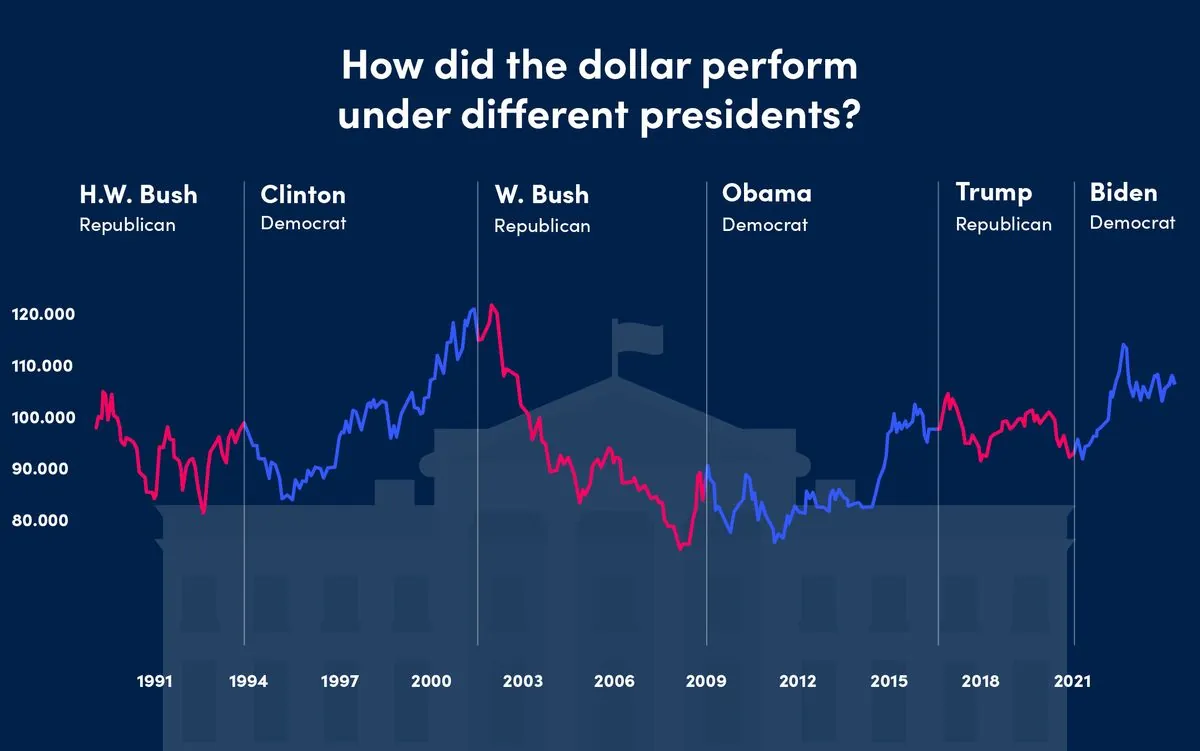U.S. Executives Eye Election Impact on Taxes, Tariffs, and Trade
Corporate leaders increasingly discuss the upcoming U.S. presidential election, focusing on potential policy shifts. Energy, tariffs, and taxes emerge as key concerns amid uncertainty over Harris-Trump race.

U.S. corporate executives are increasingly focusing on the potential impact of the upcoming presidential election, with discussions on the topic surging 34% compared to the 2020 race. This heightened interest reflects the significant policy differences between candidates Kamala Harris and Donald Trump, particularly in areas such as energy, tariffs, and corporate taxes.
The Inflation Reduction Act (IRA), signed into law in August 2022, has emerged as a central topic in these discussions, alongside concerns about carbon emissions and renewable energy. These issues are particularly relevant given the contrasting stances of the candidates on environmental policies and the future of the U.S. energy sector.

Sam Stovall, chief investment strategist at CFRA Research, notes that company profits could be significantly affected by the election outcome, especially if there's a decisive victory for either party. This sentiment is echoed by Robert Pavlik of Dakota Wealth Management, who highlights the uncertainty surrounding Harris' potential policies compared to the more familiar stance of Trump.
Trade policies and tariffs have become a focal point of the election discourse. Trump has proposed imposing tariffs of 60% or higher on Chinese goods and a potential 10% universal tariff. This aggressive stance on trade has prompted companies like Newell Brands to consider relocating some production out of China.
Corporate taxes remain a critical concern for businesses and investors. Harris proposes increasing the corporate tax rate to 28% from the current 21%, while Trump pledges to make his previous tax cuts permanent. David Wagner of Aptus Capital Advisors emphasizes the potential impact of tax changes on market performance, describing it as a potential "rally killer."
"I don't think anything has started yet... primarily because there's all the uncertainty around the election and what policies are going to actually stick."
The closeness of the race, as indicated by recent polls, adds to the uncertainty. An Ipsos poll conducted from August 2-7, 2024, showed Harris leading Trump by a narrow margin of 42% to 37%. This tight contest makes it challenging for companies to position themselves definitively for any particular outcome.
Some companies, however, are already outlining potential responses to different election scenarios. Tarang Amin, CEO of Elf Beauty, has indicated that the company would raise prices to offset higher tariffs if Trump wins, stating, "We don't like 60% tariff just because we feel it is a tax on American consumers."
The energy and electric vehicle sectors are particularly attuned to the election's outcome. Harris is expected to largely continue the policies of the Biden administration, including support for the IRA, while Trump has expressed intentions to undo much of this legislation and potentially end the $7,500 tax credit for electric vehicle purchases.
Ultimately, as Thomas Hayes of Great Hill Capital, LLC points out, the ability of the next president to implement their policies will depend significantly on which party controls the House and Senate. This underscores the complexity of the political landscape and its potential impact on U.S. businesses and the economy as a whole.


































